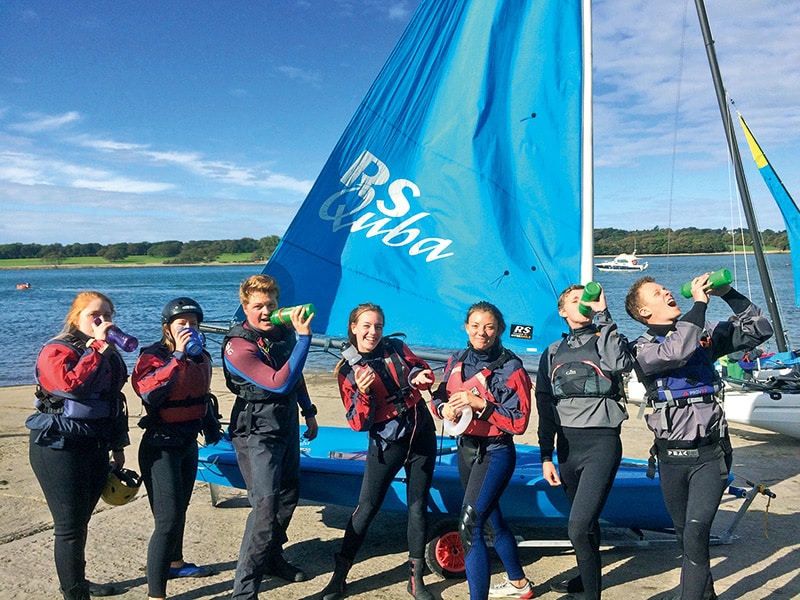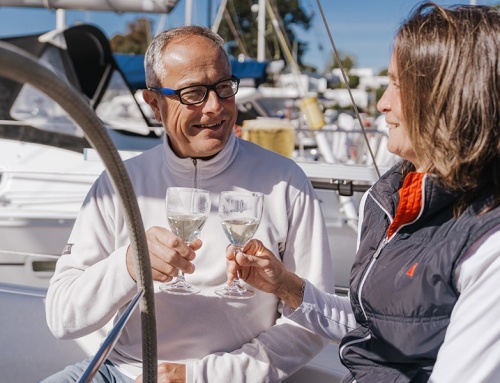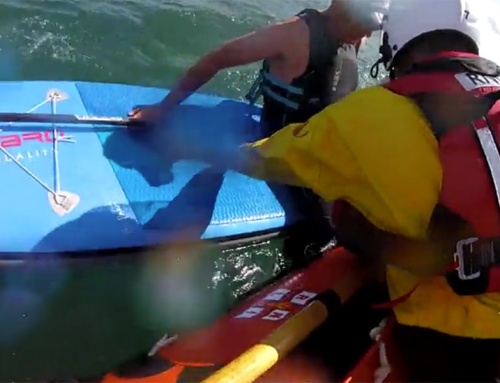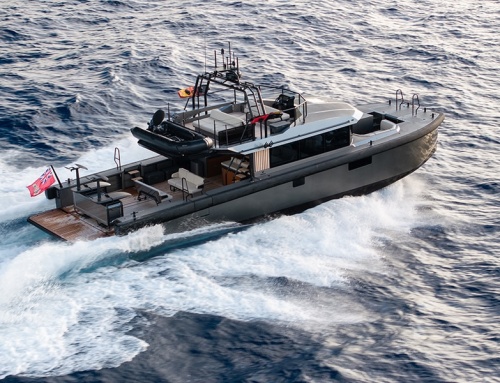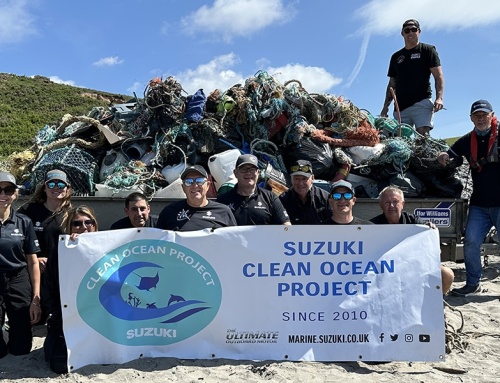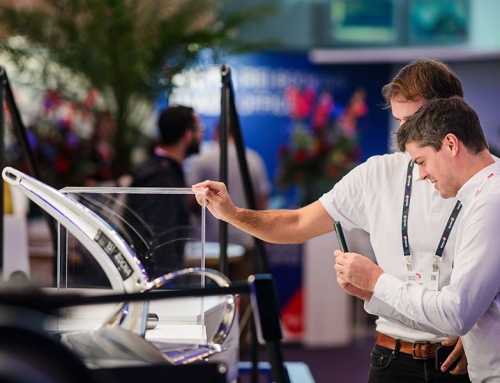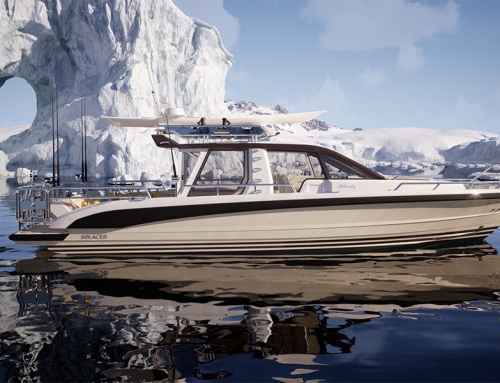- ‘It is in everyone’s interest to protect the natural environment, which supports recreational boating, and to ensure that the growth of the sport is sustainable.’
- Fresh air, community spirit, a sense of accomplishment and a tangible difference to your local beach – protecting the environment has never been so rewarding.
- It’s always hugely satisfying to look back at the beach following a successful beach clean-up.
As boaters, we all have a vested interest in protecting the environment where we spend our leisure time, and The Green Blue is dedicated to ensuring you get the best possible advice on how to do that. Demand for support, advice and resources from The Green Blue has never been stronger, with a heightened interest from the recreational boating community in how we can be part of the solution to minimise our plastic pollution and other impacts that boating may have on our environment.
The Green Blue has been working closely with the UK recreational boating sector over the last year, helping them adopt and facilitate environmental best practice to minimise any impacts on our inland and coastal waters, habitats and wildlife – with a particular focus on our Marine Protected Areas and preventing the spread of harmful invasive non-native species.
But what else can we do to #GoGreenFor2019?
1. Reduce energy consumption
Think about your carbon footprint in terms of the type of fuel you use for propulsion, heating and power. Consider alternatives like biodiesel or biogas if possible, but ensure these are sustainably sourced and produced. Be aware of how much fuel you’re using, and how you use your generator. Try to cook or cool food and drink in more energy-efficient ways. Install low-energy lighting and a more efficient engine to reduce your energy use.
2. Stop the spill
Reduce the amount of oil and fuel entering the marine environment from your boat by following The Green Blue’s best-practice advice. Take care to avoid spills when refuelling. If you do spill, never use detergents to clean it up! Trying to disperse spilt oil by using detergents exacerbates the problem. Detergents break down oil into smaller particles, which are then more readily available to fish and aquatic life. They can strip the oils from gills, making breathing difficult. What’s more, the phosphates in detergents can cause algal blooms, which in turn lead to a loss of oxygen and the death of aquatic life.
3. Recycle
Recycle as much waste on board as possible. With the increasing amount of mixed recycling facilities now available, you need only two bins on board. Ask your marina to provide recycling facilities and point out that recycled waste can be up to 50% cheaper to dispose of than waste going to landfill. Think about recycling old equipment at boat jumbles, Freecycle or on eBay rather than throwing it away.
4. Ditch the disposables
Plastics that end up as ocean debris contribute to habitat destruction and entangle and kill tens of thousands of marine animals each year. To limit your impact, stamp out single-use plastics by using refillable water bottles and reusable bags, buy products with less packaging to reduce your carbon footprint, always choose products without microbeads and ditch the disposables – remove all plastic cups and straws. Consider more eco-friendly alternatives such as cutlery and rubbish bags made from corn starch, which can be composted.
5. Take care when antifouling
When carrying out antifouling work, always take care to prevent antifoul going into the water. If a pressure washer is used to remove fouling, it is highly likely that the water run-off will be contaminated with paint, and this could enter the marina water if it’s not contained. A permanent bund, tarpaulin or heavy rope laid across the hardstanding can be used to collect much of the paint residue. Once the hull is clean, this waste can be collected and disposed of in an appropriate way. Boat owners can play a vital role in preventing concentrated scrapings from entering the water by choosing a marine facility that uses a washdown system to capture run-off.
6. Clean with care
Products used for cleaning and maintenance by berth holders and marina visitors have an impact on the water quality and pollution levels in the marina. Everything from the washing-up liquid and shower gel used on board to the cleaners, waxes and polishes used on boat hulls can, and does, enter the water and adds to the pollution level. Always choose environmentally friendly cleaning products – suggestions for alternative products are given in The Green Blue’s ‘Green Directory’.
7. Think about your rubbish!
Remove as much excess packaging as you can before you go out on the boat and always prevent plastic bags, drink cans and loose items from blowing overboard. If litter does find its way overboard, use the opportunity to practise your man-overboard procedure. You can also set an example to your crew by not throwing any litter (including biodegradable waste) overboard and by investing in biodegradable rubbish bags, which break down in 12 to 18 months rather than up to 500 years.
8. Help take care of the beach
Fresh air, community spirit, a sense of accomplishment and a tangible difference to your local beach – protecting the environment has never been so rewarding. It’s always hugely satisfying to look back at the beach following a successful beach clean-up. It’s a wonderful way to take care of your favourite stretch of coastline and bring together like-minded people in your local community. By participating in local beach clean-ups, you’ll be supporting the thousands of volunteers who have joined the rubbish revolution to help keep our beaches litter-free.
9. Save the date
Invasive Species Week will be back from 13th to 19th May 2019. You can join in by following @CheckCleanDryGB or searching #InvasivesWeek. There are currently about 140 aquatic non-native species in Britain and many species thrive in both salt and fresh water. Their main means of spreading is via boat hulls or propellers, or within bilge or engine-cooling water systems. As a water user, you may also be unknowingly spreading invasive species via your shoes and clothing. You can help stop this happening by following three simple steps: Check, Clean, Dry! Everyone can play a part in preventing the spread of alien species – will you?
10. Check out our new resources
New resources to look out for in 2019 are The Green Blue’s video guide for marina operators on what’s involved in developing a site biosecurity plan to prevent the introduction and spread of invasive species, and an online ‘Sustainable Event Toolkit’ for clubs running smaller regattas and larger boating event organisers looking to make their event more environmentally sustainable and gain recognition for their achievements.
Kate Fortnam, campaign manager for The Green Blue, sums up: ‘It is in everyone’s interest to protect the natural environment, which supports recreational boating, and to ensure that the growth of the sport is sustainable. If you’d like help to ‘Go Green for 2019’, please do get in touch. The Green Blue is here to help.’
The Green Blue is the joint environment initiative of the Royal Yachting Association (RYA) and British Marine and aims to help boat users, boating businesses, clubs and training centres to reduce their impact on coastal and inland waters to keep them in great shape for now and the future. The Green Blue raises awareness, supports practical projects, runs bespoke outreach activities and offers easy-to-follow advice to make boating in the UK as sustainable as possible. Visit www.thegreenblue.org.uk to find out more.

